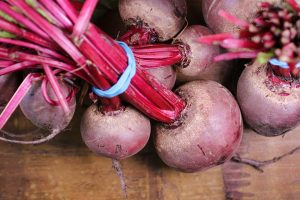
What the heck are oxalates and how do they affect your kidneys?
More people are complaining of kidney pain these days. Do you know someone with kidney pain? I do.
When someone comes to me with kidney pain, the first thing I recommend is detoxing. There are many things that you can do to address the source of your kidney pain, and I’ll list those below, but I first want to bring oxalates into the picture because oxalates have not gotten much attention.
With the degradation of our food quality these days, I suspect that oxalates are at the root of many kidney issues. People are more toxic as a result, so focus on detoxing your body as a start.
Oxalates
Oxalates are created in your body as a waste product, but they are first eaten by you in foods like vegetables, fruits, nuts, and grains. Some of the foods that are highest in oxalates include:

- green leafy vegetables
- soy
- almonds
- potatoes
- tea
- rhubarb
- cereal grains
- beets
Oxalates are not the bad guy, but it seems more and more people are having negative reactions to them these days. Oxalate foods don’t negatively impact everyone, but they can impact your kidneys if your pH is out of balance, if you don’t drink enough water every day, or if you’re toxic and need to detox.
A high oxalate level is called oxalosis, and this happens when oxalate builds up in your organs and tissues throughout your body.
A buildup of oxalates can damage your bones, thicken your blood and damage your blood vessels, your eyes, your skin and even your heart.

Kidney Stones
Too much oxalate can build up in your urine and combine with calcium to form kidney stones. Calcium oxalate stones are the most common type of kidney stone.
Most people don’t have an issue with oxalates because it’s generally harmless and should easily pass through your body in your urine.
If you’re experiencing kidney pain, or if you have had kidney stones in the past, consider altering your diet while you detox to remove excess oxalates that may have built up over time.
Detoxing definitely feels better than passing a kidney stone, which is extremely painful.
Symptoms of High Oxalates
If you’re experiencing kidney pain, you may be feeling symptoms of a kidney stone or calcium oxalate crystals building up in your urine. Initial symptoms include:
- Pain when urinating;
- Blood in your urine;
- Sharp pain in your back or lower belly;
- Feeling sick to your stomach or throwing up.
How To Flush Oxalates From Your Body
Don’t panic if you think this may be happening to you. Detox and scrutinize your diet as soon as you notice kidney pain and you might be able to avoid a trip to your doctor.
Extra fluids help flush oxalates from your kidneys, and this prevents them from building up and creating kidney stones or calcium oxalate crystals. Change your diet by:
- limiting salt and sugar
- eating less animal protein (meat, milk, eggs and fish)
- avoiding foods high in oxalates
- don’t drink colas – neither regular or artificial
- avoid GMO foods
Don’t panic if you think this may be happening to you. Detox and scrutinize your diet as soon as you notice kidney pain and you might be able to remedy this before it gets worse in the future.
Oxalates are OK for most people, but if you have IBS and problems with your gut, limit the foods they are found in.
Listen to your body when you feel pain – it’s your body’s way of telling you something important.
_______________
If you want to learn more about healthy living and disease prevention, contact me at janethull.com. Remember that you are never alone when you are looking for good health!
I look forward to supporting you on your journey to alternative health and wellness.
_____________
Disclaimer: This article is for informational purposes only, and is educational in nature. The FDA may not have evaluated some of the statements. This article is not intended to diagnose, treat, cure, or prevent any disease. Please discuss with your own, qualified health care provider before adding supplements or making any changes to your dietary program.
Before taking vitamins, consult your doctor; pre-existing medical conditions or medications you are taking can affect how your body responds to multivitamins.
You have our permission to reprint this article if you attribute us with a live back-link to this article and the youtube links. http://www.janethull.com/
_______________